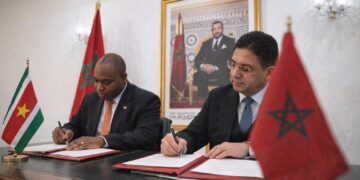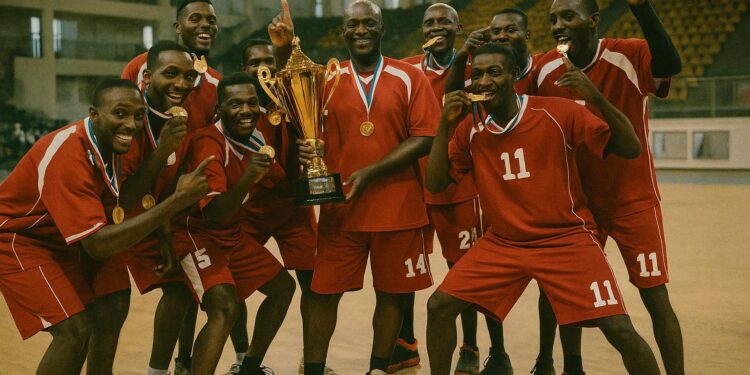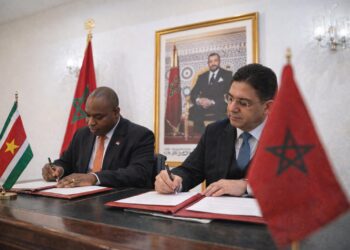A Season that Transcends the Hardwood
The Congolese Basketball Federation has confirmed that the 41st National Championship will unfold in Brazzaville from 17 to 24 August, immediately followed by the Coupe du Congo from 25 to 27 August. While the announcement, delivered by Federation Executive President Mateve Makaya, might appear routine, its resonance extends well beyond scores and standings. Within diplomatic and development circles, sport has long been recognised as a subtle yet potent vector of national cohesion and image-building. Brazzaville’s choice to concentrate both flagship events in the capital simplifies logistics, but it also offers the government a focused opportunity to project organisational competence and celebrate a youthful demographic that already forms the majority of the population.
Calibrating Competitive Balance Nationwide
Participation numbers reveal an encouraging breadth of engagement. Thirteen men’s formations and eight women’s line-ups have confirmed entry, reflecting a geographic spread anchored by the two main urban leagues—Brazzaville and Pointe-Noire—yet increasingly inclusive of interior departments. Brazzaville alone provides five senior men’s and five senior women’s sides, evidence of a mature urban talent pool. Pointe-Noire follows with four men’s and three women’s senior teams, while smaller jurisdictions such as the Cuvette, Lekoumou, Niari and Cuvette Ouest contribute squads that, although numerically modest, carry symbolic weight by illustrating the championship’s truly national reach. Federation officials underscore that junior divisions mirror this diversity, ensuring that talent identification is not monopolised by the capital’s clubs (Fécoket press release, July 2024).
Infrastructure, Investment and National Agenda
The hosting calendar coincides with recent renovations at the Gymnase Nicole Oba and adjunct training courts, upgrades financed through a blended scheme combining state allocations and private sponsorship from energy and telecom stakeholders. For policy observers, the refurbishment aligns with the National Development Plan’s objective of modernising public infrastructure while cultivating non-extractive avenues of economic diversification. Officials from the Ministry of Sports note that venue improvements generated over 300 temporary construction jobs and introduced digital ticketing protocols designed by a local start-up, signalling incremental progress toward a service-oriented economy. Such measures echo continental patterns in which governments employ high-visibility sporting events to catalyse urban regeneration and burnish reputations for efficiency (African Union Sports Council report, 2023).
Regional Cohesion and Soft-Power Ambitions
Beyond domestic considerations, the August fixtures serve a soft-power agenda. Congo-Brazzaville aims to position itself as a dependable host for future FIBA Africa qualifiers, a status that would attract inflows of tourists, sponsorships and broadcasting revenue. Diplomatic missions in Brazzaville confirm a growing interest from neighbouring capitals in sending cultural and sporting delegations to observe the championship. In parallel, the government has facilitated expedited visa procedures for accredited athletes and media, an administrative gesture that resonates positively within regional integration frameworks such as ECCAS. According to a senior official at the Ministry of Foreign Affairs, the exercise offers ‘a micro-laboratory for the kind of streamlined mobility our economies require’, hinting at broader aspirations to harmonise travel and trade regimes.
Looking Beyond the Final Buzzer
While the trophy ceremony on 27 August will crown two champions, the enduring metric of success will be institutional. If the event unfolds smoothly, the Federation stands to reinforce its lobbying case for increased budgetary allocations and corporate partnerships ahead of the 2025 season. Coaches in Brazzaville emphasise that continuous competition is vital for stemming the outflow of promising players to foreign leagues, which in turn sustains national team depth. For policymakers, the championship offers a controlled environment to test public-health protocols and crowd-management techniques that could inform the organisation of future mass gatherings. Ultimately, the narrative that emerges this August could fortify Congo-Brazzaville’s outward-facing identity as a stable and hospitable actor on the Central African stage, illustrating how a basketball court can, at times, double as a diplomatic parquet.











































